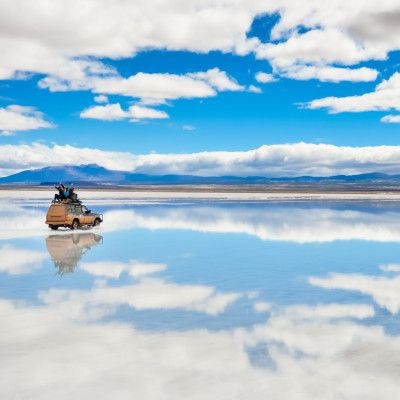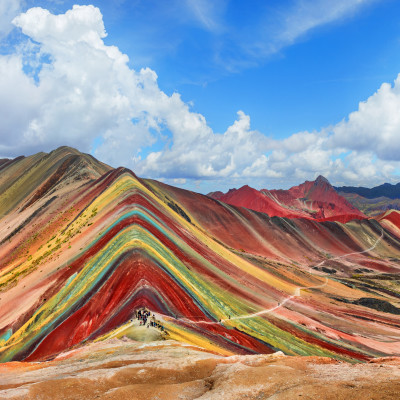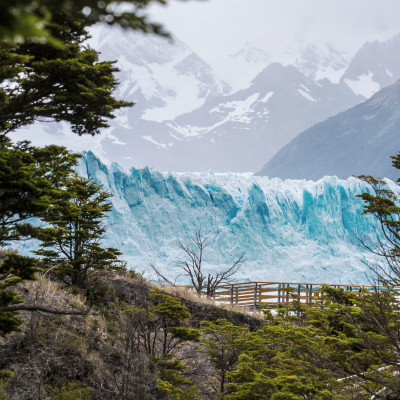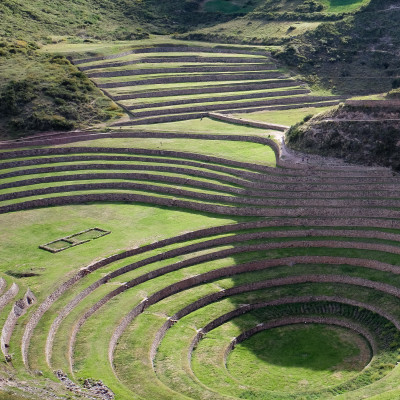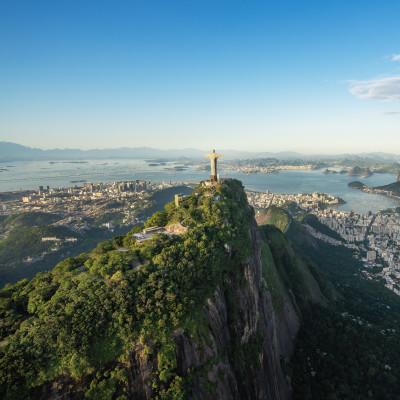Luxury South America Tours and Vacations
South America is the continent for history and nature lovers, for the culturally curious, for gourmets, or anyone looking for a great tour. Its stunning geography and intriguing history allow for a range of immersive experiences. Who won’t be overawed by the incredible salt flats at Uyuni in Bolivia? Or by the raucous rainforests of the Amazon in Brazil, or the chilly glaciers and peaks of Argentina’s Patagonia? There are exuberant cities that salsa and tango late into the night, and capitals like Peru’s Lima and Ecuador’s Quito, that exude classic historic charm. In contrast, you will find rejuvenating calm at seaside retreats or at the centuries-old estancias of Uruguay.
With so much to see and do, your wish-list can go out of hand. It may be difficult to figure out how to make the best of your vacation time or what is the best time to visit South America, especially when you’re looking at a continent this size. Why not leave the time-consuming planning to the experts at Enchanting Travels? You only need to make a few choices. Whether you want to start high up in the Andes of Chile, lower down in the Amazon Basin, on a Caribbean beach in Colombia, or in the stunning Galapagos Islands. Then sit back and relax, and let our super-attentive team see your trip through, from start to finish.
Popular Trips to South America

Discover Brazil’s lush green coast, the Costa Verde, on this customizable vacation. Your journey begins in Brazil’s capital, Rio de Janeiro. Explore Tijuca National Park high above Rio and marvel at the world-famous Christ the Redeemer statue on Corcovad Mountain. At your next destination, Paraty, visit the UNESCO-listed Old Town and learn how Cachaça, a popular…

Hop across the hemisphere to explore some of the most beautiful landscapes in the world. Delve into the region’s history and culture at Buenos Aires before heading for El Calafate to marvel at the incredible beauty of the Perito Moreno Glacier. At Torres del Paine National Park, go hiking and horse riding past ancient forests…

Marvel at surreal glacial mountains and glittering lakes at the edge of the world on this customizable adventure to Argentina’s Patagonia region. Your exploration begins in Ushuaia, the southernmost city in the world. Delve into the region’s Fuegian and maritime heritage, and enjoy a personalized tour around the wonderful wilderness of the Tierra del Fuego…

If you want to truly experience the best of what the fabulous Amazon region has to offer, this is the tour for you. Enjoy canoe rides and guided hikes around the Mamiraua Reserve to spot wildlife such as howler monkeys and uakaris. Go on an excursion to look for river dolphins and caimans at Mamiraua…

This is the perfect tour for nature and wildlife enthusiasts who want to experience the rich biodiversity of the world’s largest rainforest and the world’s largest wetland. Explore the assorted charms of Rio de Janeiro before heading into the Pantanal region. Enjoy guided hikes, and horseback and canoe rides around the wetlands to learn about…

Delve into the natural beauty, culture and history of Peru over the course of 11 memorable days. Savor the culinary delights of Lima after a day of exploring its colonial architecture. You might find yourself taking plenty of pictures as you admire the scenic landscapes and wildlife around Puerto Maldonado. Round off your Peruvian vacation…
Sorry, your search found no results.
Our Awards





What Our Guests Say
Best Places To Visit
Best Time To Visit
There are several different types of landscapes in this vast continent, and the climatic zones will vary greatly on your trip. Read an overview by country from our destination experts.
Things To Do
Imposing glaciers, vast deserts, endless salt flats, and the roaring Iguazu Falls – South America has it all. Get your lowdown on where to go and the top things to do in South America.
From the Blog

They are stunning feats of architectural genius, historic centers of ancient cities, or incredibly rich habitats that are fast disappearing. Curated by our experts, discover 2019’s top 10 UNESCO World Heritage sites from our exotic world.

The Iguazu Falls are an absolute highlight of a South America vacation. Located on the triple frontier of Argentina, Brazil and Paraguay, you can see the world’s largest waterfalls from the Argentine side as well as the Brazilian side. But, which side is better for you?
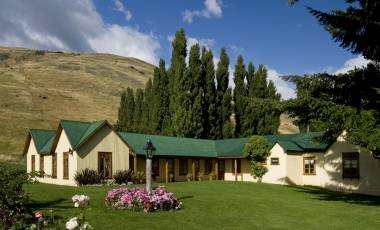
Discover why a tour in Argentina, Uruguay and Chile is incomplete without a stay in the charming estancias and haciendas that these countries are known for.
Sorry, your search found no results.

